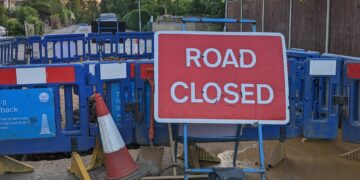If Robert Jenrick’s planning reforms launched in early August have taught us anything, it’s that you shouldn’t trust Government Ministers with anything complicated or difficult.
His technical consultation contains an algorithm that doubles the annual housing number in our borough – to triple what we need to look after ourselves. His reform consultation is doublespeak, cloaking the real intent behind a wall of impenetrable verbiage.
And while this might look good for a few people in Westminster or Whitehall, in the rest of the country, they seem closer to creating housing problems than to solving them.
A hard challenge
If you don’t want to think about housing, then you might like something a bit easier: speed dating in Finland; one-handed Origami and underwater macramé all come to mind.
But if you’re truly up for the challenge, then you might want to list the different types of problems associated with housing (renting, buying or owning) and see what sort of list you come up with.
Having tried this in preparation for writing this commentary, the 60+ problems fitted ten different categories:
- Central Government;
- Local Authorities;
- the planning system;
- the housing market;
- finance and fiscal;
- transport and travel;
- design and placement;
- infrastructure;
- availability;
- managing development;
And this was before considering social problems and the challenges that are Wokingham specific.
By the time the first draft had got to three times the length you’d accept while covering less than half of the above, it dawned on me that just describing ‘the problem’ might be intractable, let alone working out how to resolve it.
A hop, skip and a jump …
For central government, the housing problem as we know it today dates back to the end of the second world war. New towns, compulsory purchase and the Town and Country Planning Act were just the start. In the subsequent 75 years there’s been at least 73 acts of parliament and just over 1,000 statutory instruments to do with planning.
For local authorities, they’ve been hamstrung by central government sine the Local Government, Planning and Land Act 1980, then fleeced at least twice – over council housing alone. They’ve also been cut out of regulating the builders as bigger developers all undertake self-certification.
The planning system itself has had so many revisions, inclusions, exclusions, adaptations, rules, guidances, policies, statements, consultations and changes of ministerial direction that it would take weeks if not months to research and list all that’s been done.
Despite all the ‘improvements’ the planning system still doesn’t have any system memory to help us all learn which developments worked and which didn’t – so the country keeps on getting the same type of mistakes over and over again.
The housing market is still broken, despite Sajid Javid’s efforts to fix it two years ago. The financial consequences of the 2008 American housing crash still rumble on, while those of the overheated British housing market haven’t hit yet.
And while the word ‘infrastructure’ might sound dull and uninteresting, that won’t be the case when the Thames Valley is so overbuilt that there’s a permanent fresh water shortage and the sewers start stinking.
As WBC’s Grazeley bid demonstrated, one needs lots of money to pay for infrastructure. If a Grazeley-sized development went ahead without the funds, would you prefer to raise money via a council tax development surcharge or pay a stealth tax via higher indirect costs and lower capacity of existing services?
Wokingham Specific Challenges
Set against the wider problems facing the country and the other principal councils, the challenges unique to our borough don’t seem that bad.
There’s a sewage farm which now seems like it’s in the wrong place; an industrial estate that’s definitely in the wrong place; a motorway that Highways England broke and haven’t fixed (yet); a Core Strategy that the council doesn’t meet when it’s the developer; and a rubbish dump that got sold off when it perhaps shouldn’t have been.
The over-development of Three Mile Cross, Shinfield and Spencers Wood might be a passing distraction for everyone except the residents there, but it’s nonetheless a clear sign of the wrong way to do things.
Unless you’d prefer a pair of ‘Co-op cities’ as last week’s commentary suggested was not only possible but might be inevitable if Robert Jenrick’s planning reforms went ahead as written ?
The Last Word
As Abraham Maslow (among others) said some years ago, “if all you have is a hammer, everything looks like a nail“.
So if we keep on building too many of the wrong homes in the wrong places, then using Planning Reform to solve the housing crisis won’t work any better than a petition which doesn’t force a government debate.
Although whether a government debate will actually solve the problems …
… is debatable.












































